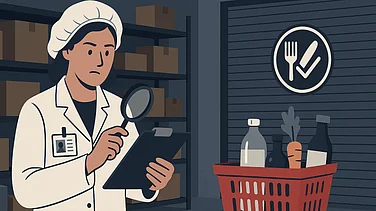With the United States supporting an initiative by India and South Africa at the World Trade Organization to temporarily waive patent rules on Covid-19 vaccines, experts proposed on Thursday that member countries of the WTO immediately begin negotiations on the text to finalise the plan, given the rise in Coronavirus infections.
TRIPS (Trade-Related Aspects of Intellectual Property Rights) entered into force in January 1995. It is a multilateral agreement on intellectual property (IP) rights such as copyright, industrial designs, patents, and trade secret protection.
In October 2020, India and South Africa proposed a waiver for all WTO members regarding the adoption, application, and compliance of certain TRIPS provisions related to the prevention, containment, or treatment of Covid-19.
Experts say WTO (World Trade Organization) negotiations should be completed as soon as possible because the world urgently requires vaccines and other medical goods to contain and cure the disease.
The Biden administration has supported a move at the WTO by India and South Africa to temporarily waive patent rules on Covid-19 vaccines. It is being hailed as a milestone in the global battle against the deadly pandemic, as it will increase the availability of vaccines and make them more affordable for countries with lower incomes.
"How long the negotiations will go in the WTO to agree on the text. That will be key because we need the things right now. "Details of the text will be important as there should not be any conditions, which could make it difficult for developing countries like India and South Africa to manufacture vaccines. The devil lies in the details," Biswajit Dhar, professor of economics at Jawaharlal Nehru University, said. He added that all the things required to treat and contain Covid-19 should be free from IPR (Intellectual Property Rights) incumbrances. National Intellectual Property Organisation (NIPO) President T.C. James said the words in the text would be key and the WTO member countries should soon start the negotiations on that. "Technology is important here, IPR is not that big thing. We need to encourage more competition among pharma companies," James said.
Announcing the major policy decision after intense internal debate and strong pushback from American drugmakers, US Trade Representative Katherine Tai on Wednesday said this is a global health crisis, and the extraordinary circumstances of the Covid-19 pandemic call for extraordinary measures.
Dev Robinson, partner and national practice head (IPR) at Shardul Amarchand Mangaldas & Co, said, "Suspension of IPRs (are) only a part of the solution that IPR owners may not assert their rights in certain situations. The other part of it is actual cooperation to effect a transfer of know-how-to manufacture. This is the tricky part."
When asked whether the move will help Indian pharma firms to get technology know-how from global pharma majors to produce the vaccine domestically, he said quality components are key, and setting up facilities could take time. "A hybrid approach appears more plausible to attend to the circumstances of national emergency and extreme urgency," he added.
Jaishil Shah, the partner at Deloitte India, said the proposal is approved by the US and needs approval from other countries as well. "This will ensure affordability and accessibility across developing/underdeveloped countries which in turn can help fight this pandemic. Definitely, this will help India get technical know-how from other leading organisations. This in turn will help us have a different variety of vaccines and ensure faster reach," Shah said. He added that the government should engage with other countries to discuss the benefits from this move and ensure support on vaccine requirements across the world.































